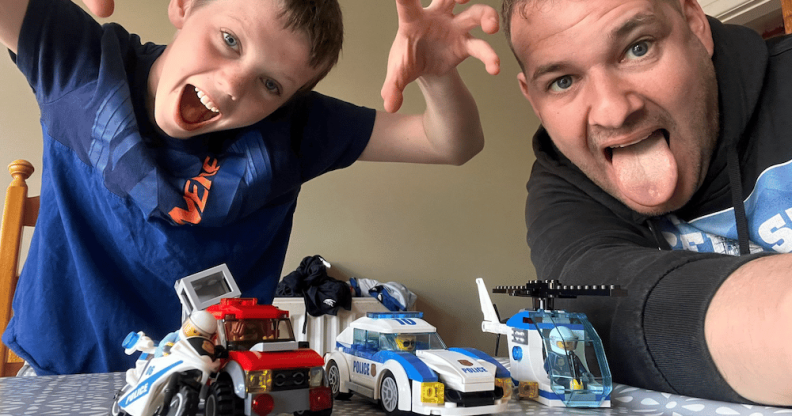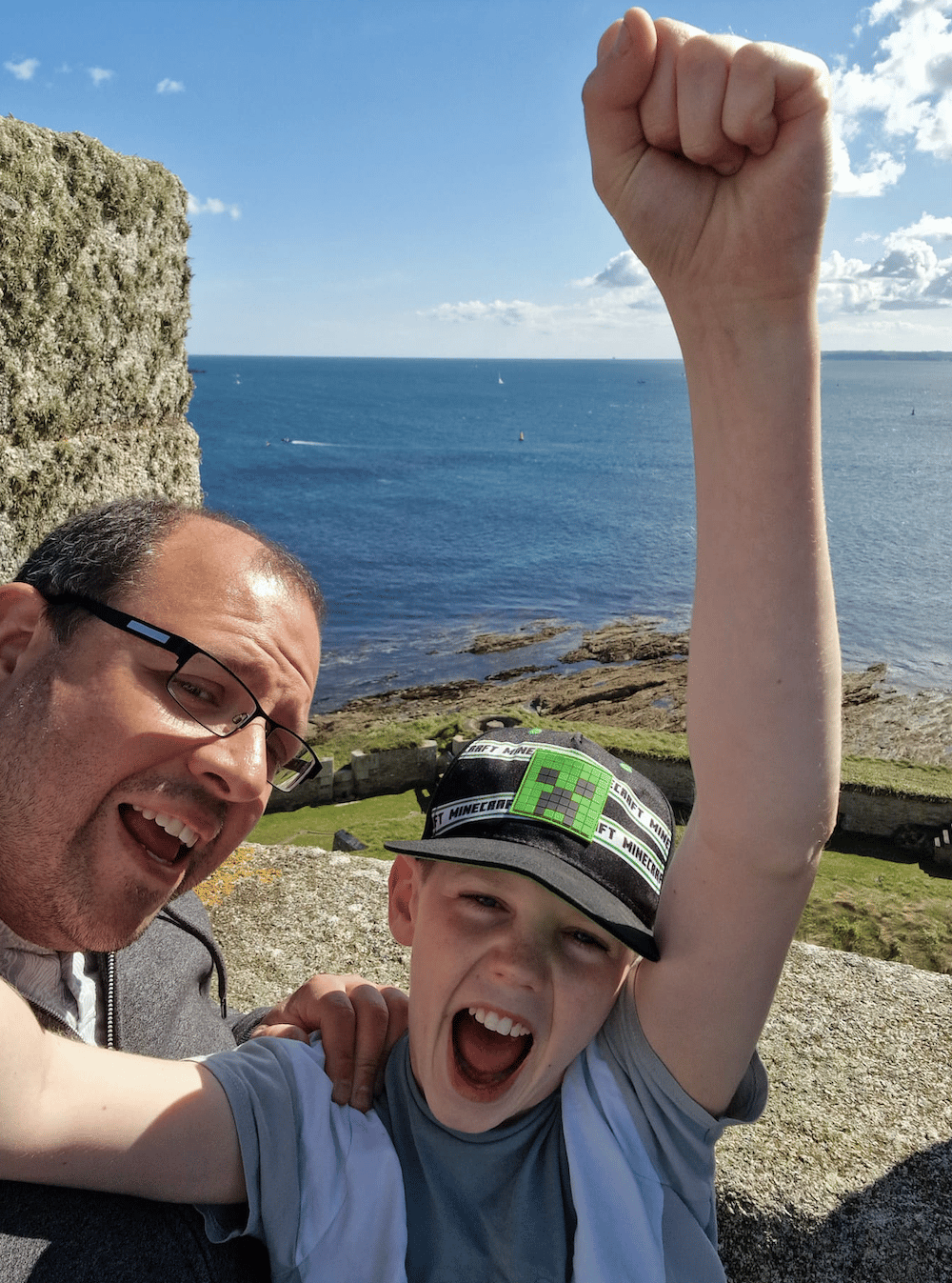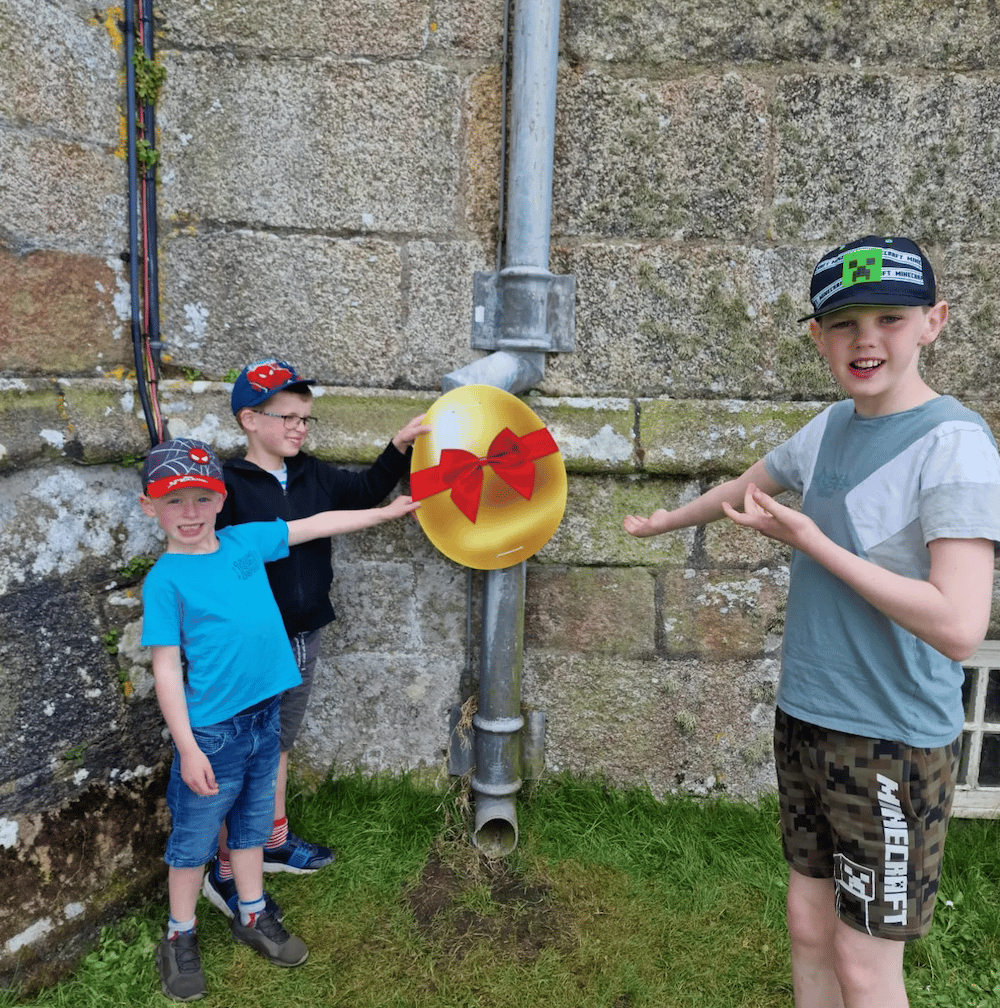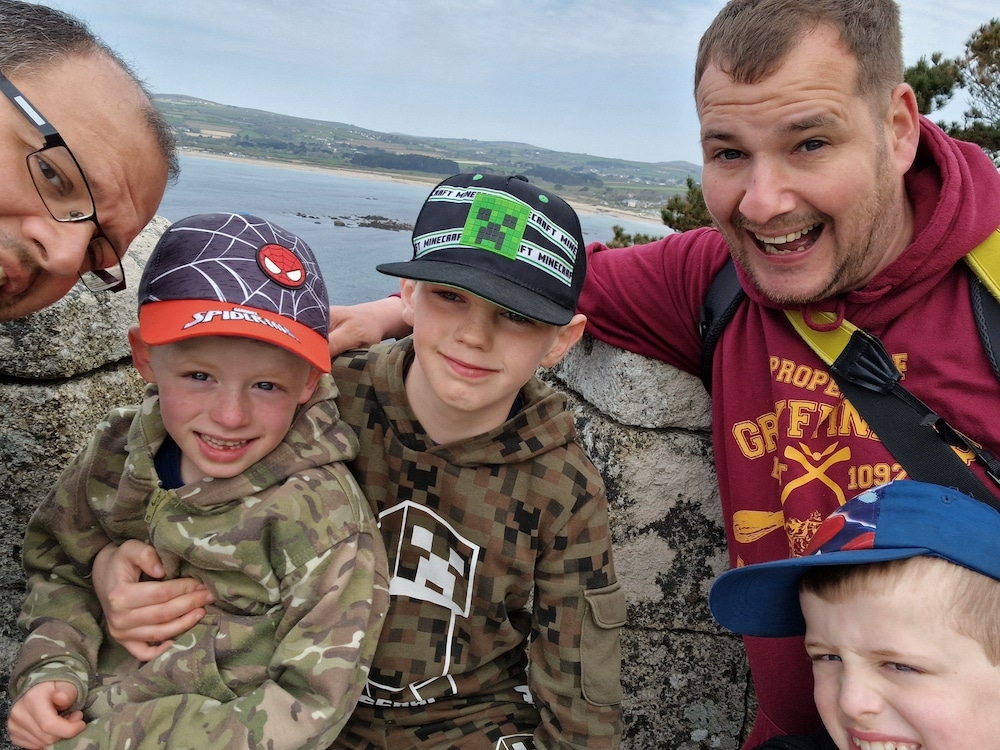Gay dads share ‘magic’ moment they met their son: ‘You know when something’s right’

Chris with one of his sons. (Provided)
When Chris Smith and Phil Ashton met their son, they knew straight away they were going to adopt him.
The couple had never discussed the idea of adopting a child with additional needs until they met their son, who was three at the time, at a special party for children deemed “difficult to place”.
Routinely, kids with additional needs like their son, as well as older children, sibling groups, and those from ethnic minority backgrounds wait the longest to be adopted, according to the nationwide adopter recruitment campaign You Can Adopt.
“You get this small profile of all the children that are there and we spotted this profile of this little boy that we’d kind of seen previously… and we saw he was completely different to what was written on paper,” Chris tells PinkNews.
“On paper, it said he was ‘very delayed’, he had a condition, but all we could see was this little boy running around, beaming, smiling, laughing, joking, and being really wild.”
“It just happened,” Chris adds. “It was like magic.”

Phil with one of his children. (Provided)Shortly afterwards, Chris and Phil arranged to meet their future son along with his foster carer and a social worker.
“We just started forming that bond quite quickly,” Chris says.
“You know when something’s right, don’t you?” Phil adds.
It’s been seven years since their son joined their family. He’s now 11 years old.
“It’s been a lot of fun, hasn’t it?” Phil says.
“There have been so many adventures. It’s been so much fun,” Chris adds. “He has such a personality and he’s completely different from what doctors said he would achieve – he’s doing really, really well at school… he’s got such a unique personality. Everyone knows who he is in school because he’s very loud, so he lets everyone know he’s there.”
Chris and Phil adopted two siblings to complete their family
Three years after they adopted their first son, Chris and Phil made the momentous decision to adopt a second child.
“The second time around, we really thought about it – we said we wanted someone younger, and we wanted to adopt a child without any disabilities because we thought: Well we’ve got one child with disabilities, let’s see if the second child can help him emotionally and academically as well.”
They got their approval fast and before long, they were told they had been matched with a child – but there was one aspect of the report that worried them.
“When we saw the child’s report we saw he had a sibling,” Phil explains. “We asked the question: ‘Why aren’t they being adopted together? Why are they being separated?'”

Phil and Chris’ three sons. (Provided)
There was no way we were going to leave him behind
They soon learned the child’s sibling had “significant complex needs”. Social workers figured it would be impossible to find a couple willing to take on the challenge of adopting them together.
“They were going to split them up, but there was no way we could do that,” Chris says. “There was no way we were going to leave him behind.”
Chris and Phil knew they could do it – they already had experience of raising a child with additional needs.

Phil (L) and Chris (R) with their three sons. (Provided)
They asked social workers if they could adopt both children, and today, they’re proud dads to three boys.
Their third son has “come on massively” since those early days. When he first came to live with them, he was non-verbal, but he has since started talking.
“He is completely different to how he was,” Phil says.
They’ve built their lives around their three children
The experience has been life-affirming for Chris and Phil. It’s changed everything for the better and has given them the chance to fulfil their lifelong dream of becoming parents.
But they’re all too aware there are so many children just like theirs who are languishing for lengthy periods of time in the care system. Would-be parents are naturally worried they might not have the wherewithal to raise children with additional needs – Chris and Phil’s advice is to actually meet those kids before making a judgement about who they are.
“You’ve got to get to know them. They are going to be completely different to what you think they are,” Chris says. “Developmentally, they will reach the milestones. Give a child a chance, I’d say.”
They’re also conscious many parents want to adopt younger children because they’re afraid of missing out on those “first” moments, such as their first words or first steps. But Chris and Phil make the point that there will be many more firsts along the road.
“There are so many first moments you can still get,” Chris says.
Their advice to LGBTQ+ people who are thinking about adoption is simple: go to an information evening and always remember there’s no such thing as a silly question.
“We’ve not met any [discrimination],” Phil says. “Everyone has been very friendly and accommodating. We’ve had equal chances.”
Our oldest grabbed us and said: These are my daddies. I love them loads
Having children of their own has enriched their lives in ways they could never have imagined. Every day is an adventure, and they’ve travelled all over with their sons so they can see the world together.
“You have these little moments of pride,” Phil says. He recalls one particular heartening moment in Wales when they brought their sons to a museum.
“They take a photo and try to charge you all this money for it. I said: ‘Oh no, I’m not really interested,’ but our oldest grabbed us, pulled us to the camera and said: ‘These are my daddies. I love them loads.'”
“You kind of build your life around your kids,” Chris adds. “They’ve all got their different quirks, and they all just get along brilliantly with everybody.”
You Can Adopt’s “A Life Less Ordinary” campaign is encouraging prospective parents to broaden their horizons and consider adopting children who desperately need a loving, stable family home, regardless of their background
You can find out more here.

